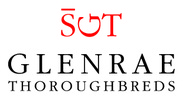Certain factors affecting yearling sales (e.g. pedigree and performance) are beyond anyone’s control. However, paying meticulous attention to the yearlings’ conditioning will not only improve their health and have a significant impact on the success of the horse sale preparation process, but it will also increase the horses’ value to prospective buyers.
Weaning Systems
Studies show that progressive weaning is ideal. Sometimes the condition of the facilities, the number of foals, and the temperament and condition of the mare dictate an abrupt weaning. We may reduce the stress experienced by the weanlings during their separation from mares by placing them in groups with their peers.
The type of facilities available and the goals for each individual horse will affect the decision to keep yearlings in stalls or turn them out in pastures. Horses in free pastures have easy access to free exercise. Stall horses receive more individual attention and have a regulated food intake.
When To Start The Weanlings’ Transformation
Most management systems wean foals at 4 to 6 months. For several months, the foals receive their nutritional requirement from their dam’s milk. With time, they require additional supplementation. Foals eat grain within the first weeks after birth. If they have access to grain, most foals will eat considerable amounts by three months of age. Pre-weaning care should grant the foal access to its own feed through creep feeders with small openings to allow sole access to the nursing foals.
Preparing The Yearling For Sale
The following factors are interdependent and require periodic assessment.
Sale yearlings must not be fat. High-quality pasture is the foundation, followed by grain and hay. The optimal levels of carbohydrates, vitamins and healthy fats need to be met with a balanced nutrition program. High protein levels may create growth spurts and hot joints, which are detrimental to the horse’s health. Supplements like oils (wheat germ, flaxseed and corn oil) can help yearlings blossom and contribute to a shiny coat. Trace minerals are vital, and it’s important to analyse pasture grass in order to supplement the yearlings with the correct nutrients and dosages. Good quality water is important too.
To achieve a toned physique, yearlings need more than just paddock exercise. While walkers and round pens are excellent at increasing fitness levels, nothing beats traditional hand walking. This teaches horses to walk in a nice loose line while also learning good manners.
Another essential role in sales preparation is grooming and handling. Regular veterinary examinations are also essential during the vital yealing stage. Foot care begins at ten days to achieve a good clean path flight.
Welcome a future winner into your stables! Contact Glenrae Thoroughbreds to learn more about our experience and knowledge in horse sale preparation.
Studies show that progressive weaning is ideal. Sometimes the condition of the facilities, the number of foals, and the temperament and condition of the mare dictate an abrupt weaning. We may reduce the stress experienced by the weanlings during their separation from mares by placing them in groups with their peers.
The type of facilities available and the goals for each individual horse will affect the decision to keep yearlings in stalls or turn them out in pastures. Horses in free pastures have easy access to free exercise. Stall horses receive more individual attention and have a regulated food intake.
When To Start The Weanlings’ Transformation
Most management systems wean foals at 4 to 6 months. For several months, the foals receive their nutritional requirement from their dam’s milk. With time, they require additional supplementation. Foals eat grain within the first weeks after birth. If they have access to grain, most foals will eat considerable amounts by three months of age. Pre-weaning care should grant the foal access to its own feed through creep feeders with small openings to allow sole access to the nursing foals.
Preparing The Yearling For Sale
The following factors are interdependent and require periodic assessment.
- Nutrition
Sale yearlings must not be fat. High-quality pasture is the foundation, followed by grain and hay. The optimal levels of carbohydrates, vitamins and healthy fats need to be met with a balanced nutrition program. High protein levels may create growth spurts and hot joints, which are detrimental to the horse’s health. Supplements like oils (wheat germ, flaxseed and corn oil) can help yearlings blossom and contribute to a shiny coat. Trace minerals are vital, and it’s important to analyse pasture grass in order to supplement the yearlings with the correct nutrients and dosages. Good quality water is important too.
- Exercise, Behaviour & Training
To achieve a toned physique, yearlings need more than just paddock exercise. While walkers and round pens are excellent at increasing fitness levels, nothing beats traditional hand walking. This teaches horses to walk in a nice loose line while also learning good manners.
- Management & Health Care
Another essential role in sales preparation is grooming and handling. Regular veterinary examinations are also essential during the vital yealing stage. Foot care begins at ten days to achieve a good clean path flight.
Welcome a future winner into your stables! Contact Glenrae Thoroughbreds to learn more about our experience and knowledge in horse sale preparation.

 RSS Feed
RSS Feed